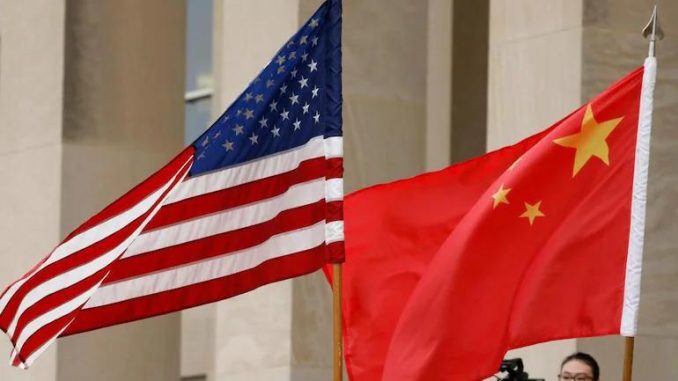

US Senators gave final congressional approval Thursday to a bill barring imports from China’s Xinjiang region unless businesses can prove they were produced without forced labour, overcoming initial hesitation from the White House and what supporters said was opposition from corporations.
The measure is the latest in a series intensifying U.S. penalties over China’s alleged systemic and widespread abuse of ethnic and religious minorities in the western region, especially Xinjiang’s predominantly Muslim Uyghurs. The Biden administration also announced new sanctions Thursday targeting several Chinese biotech and surveillance companies, a leading drone manufacturer and government entities for their actions in Xinjiang.
The Senate vote sends the bill to President Joe Biden. Press secretary Jen Psaki said this week that Biden supported the measure, after months of the White House declining to take a public stand on an earlier version of the legislation.
In This Content
TREATMENT OF UYGHURS IN CHINA
The United States says China is committing genocide in its treatment of the Uyghurs. That includes widespread reports by rights groups and journalists of forced sterilization and large detention camps where many Uyghurs allegedly are compelled to work in factories.
China denies any abuses. It says the steps it has taken are necessary to combat terrorism and a separatist movement.
Xinjiang is a resource-rich mining region, important for agricultural production, and home to a booming industrial sector. Detainees also are moved outside Xinjiang and put to work in factories, including those in the apparel and textiles, electronics, solar energy and automotive sectors, the U.S. says.
“Many companies have already taken steps to clean up their supply chains. And, frankly, they should have no concerns about this law,” Sen. Marco Rubio, the Florida Republican who introduced the earlier version of the legislation with Oregon Democratic Sen. Jeff Merkley, said in a statement.
“For those who have not done that, they’ll no longer be able to continue to make Americans — every one of us, frankly — unwitting accomplices in the atrocities, in the genocide,” Rubio said.
OVERWHELMING APPROVAL FOR BILL
As in the House earlier this week, the compromise version passed the Senate with overwhelming approval from Democrats and Republicans. The swift passage came after what supporters said was offstage opposition from corporations with manufacturing links to China, although there was little to no overt opposition.
Apple’s lobbying firm lobbied on Apple’s behalf, a federal disclosure form shows. Apple, like Nike and other corporations with work done in China, says it has found no sign of forced labour from Xinjiang in its manufacturing or supply chain.
Some Uyghur rights advocates and others said they had also feared private opposition from within the Biden administration as it sought cooperation from the Chinese on climate change and other issues.
Psaki, in her statement Tuesday night, noted export controls and import restrictions, sanctions, diplomatic initiatives and other measures the Biden administration had already taken targeting forced labour from Xinjiang.
The Senate also approved Biden’s nominee for ambassador to China, veteran diplomat Nicholas Burns, on a 75-18 vote Thursday.
Advocates credited unrelenting support from rights groups and lawmakers, including statements from House Speaker Nancy Pelosi, with helping the bill prevail.
CONFRONTING CHINA
With the legislation, sanctions and months of other new measures, “the United States is way ahead” of the international community on confronting China on abuses of Uyghurs, said Nury Turkel, a senior fellow at the Hudson Institute and vice chair of the U.S. Commission on International Religious Freedom.
How can anyone get China to change “without going after the most important thing to the Chinese government, which is their economic interest?” asked Turkel, who praised Congress — but not the administration — for what he called coherent messaging on the matter.
The legislation requires government agencies to expand their monitoring of the use of forced labour by China’s ethnic minorities. Crucially, it creates a presumption that goods coming from Xinjiang are made with forced labour. Businesses will have to prove that forced labour, including by workers transferred from Xinjiang, played no part in a product to bring it into the United States.
ALLEGED FORCED LABOUR
The U.S. cites raw cotton, gloves, tomato products, silicon and viscose, fishing gear and a range of components in solar energy as among goods alleged to have been produced with the help of the forced labour.
[“source=indiatoday”]
